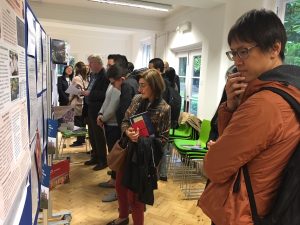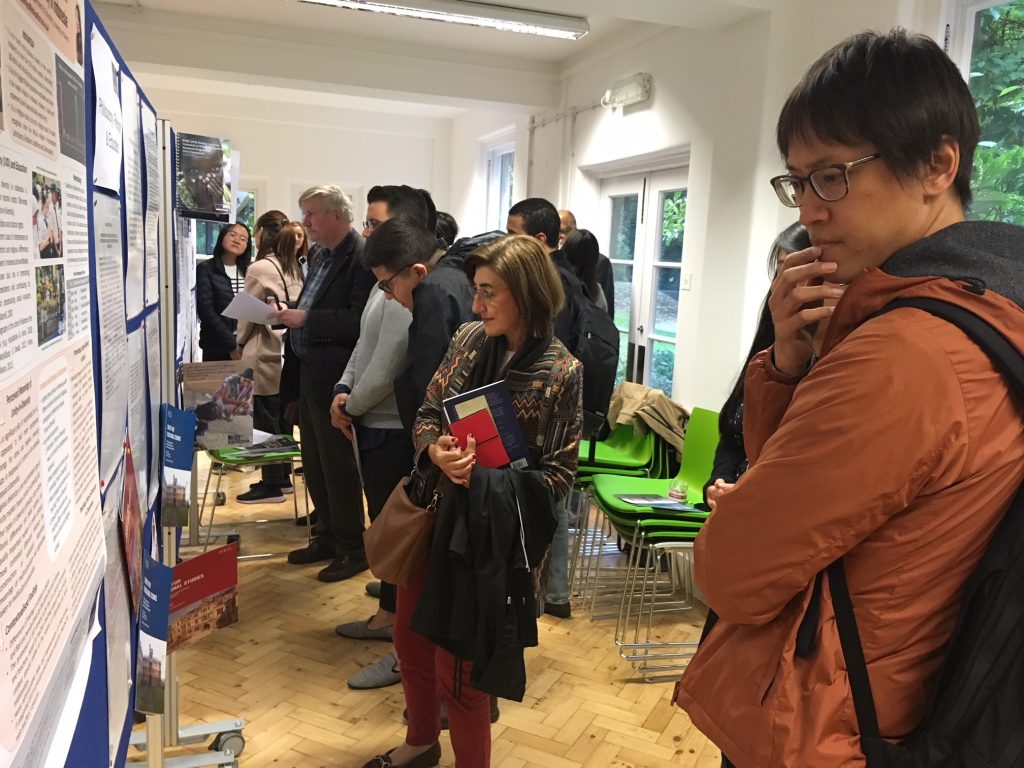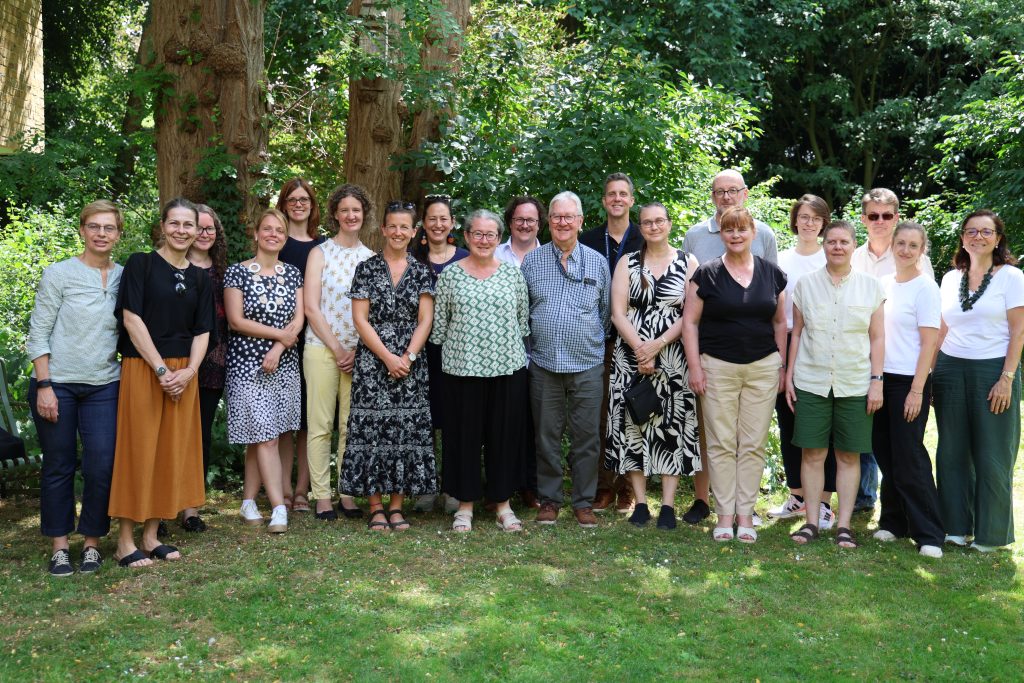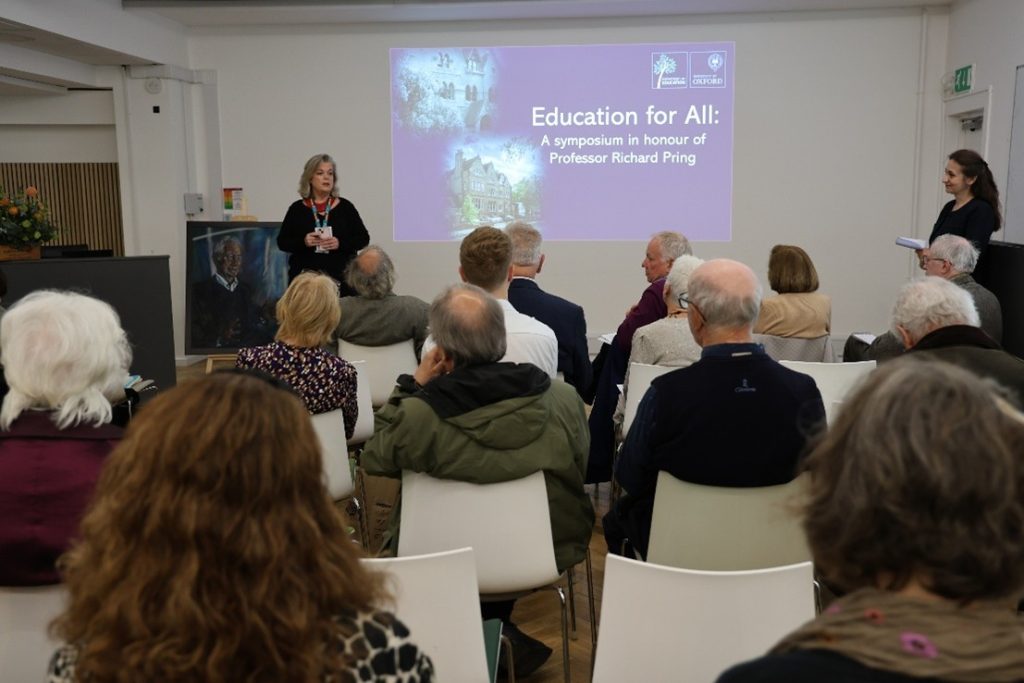The Department of Education’s annual research poster conference presents a major opportunity for research staff and students from across its 10 research groups and 3 research centres to present their research in an accessible and interesting way.
This year’s conference, held on 8 October, saw staff and students exhibit their research across the educational areas of Applied Linguistics, English Medium Instruction, Child Development and Learning, Foster Care and Education, Educational Assessment, Comparative and International Education, Skills Knowledge and Organisational Performance, Higher Education, Philosophy and Religion, Learning and New Technologies, Pedagogy, Sociocultural and Activity Theory and Teacher Education and Professional Learning.
Doctoral researchers’ posters were judged by the department’s Deputy Director of Research, Research Theme Leaders and Director of Doctoral Research.
Congratulations to the following 6 students whose posters were awarded prizes based on their visual impact, simplicity of presentation and clarity of issues:
Julianne Viola, ‘Civil Identity in the Digital Age: An investigation into the civic experiences of American youth’
Julianne’s study explores how young people come to understand what it means to be a citizen and how to be civically engaged in today’s digital era. Through in-depth interviews with young people aged 14 – 17, it investigated young people’s experiences of citizenship and civic engagement. The results introduce a new framework for civic identity and recommend a reinvigoration of civic education to nurture young people’s sense of efficacy and identity in contemporary society. Learn more about Julianne’s research interests here.
Tracey Yani Harjatanaya, ‘Accommodating the vision of diversity in different school contexts: unity-in-diversity in Indonesia’
Tracey’s project presents nuanced insight into the complex and highly contextual practice of promoting and teaching of the concept of diversity in the case of multicultural Indonesia. Using a two-tier case study research approach, the project examines the ways head teachers, teachers, students and parents from six state and private schools with different mixes of pupil ethnicity and religiosity promote Indonesia’s national vision of diversity, “Bhinneka Tunggal Ika” (Unity-in-Diversity) into educational practices.
Ikuya Aizawa, ‘Effects of English as Medium of Instruction on Students’ content knowledge Acquisition in Japanese Higher Education’
Ikuya’s project investigates the potential impact of studying academic subjects in English on Japanese undergraduate students’ content learning in comparison to learning through their first language. It also explores potential challenges faced by students regarding their disciplinary learning through English in comparison to Japanese. Learn more about Ikuya’s research interests here.
Laura Molway, ‘Language teachers’ professional learning: In search of impact’
Laura’s project explores language teachers’ Professional Learning experiences over the course of one calendar year. Teachers report very limited engagement in Professional Learning activities of the kind identified in prior literature as effective in impacting pupil outcomes. It is clear that some school departments have been more successful than others in promoting effective Professional Learning and resisting workplace policies and cultures that can lead to additional workload and stress. Learn more about Laura’s research interests here.
Jude Aizuddin Mohamed Anuar, ‘The landscape of STEM informal learning in Malaysia: What is the role of non-state sector organisations?’
Jude’s research sought to illustrate Malaysia’s landscape of STEM informal learning, and the role of non-state sector organisations populating this landscape. The organisations were overwhelmingly concentrated in urbanised Central Peninsular Malaysia, half of which were private providers. Overall, these organisations fulfil a complementary role in supporting the government to raise curiosity and engagement in STEM, by offering opportunities that are distinct from the formal STEM instruction in schools. Learn more about Jude’s research interests here.
Kedi Simpson, ‘The development trajectory of second language listening’
Over three years, Kedi’s project has explored how beginner learners in French build up their French listening skills. The project tests participants seven times a year, and includes different elements of second language acquisition which literature suggests is crucial to successful second language listening. Discover more about Kedi’s research interests here.
To learn more about research at the department and our DPhil in Education programme, visit our research and programme pages.










